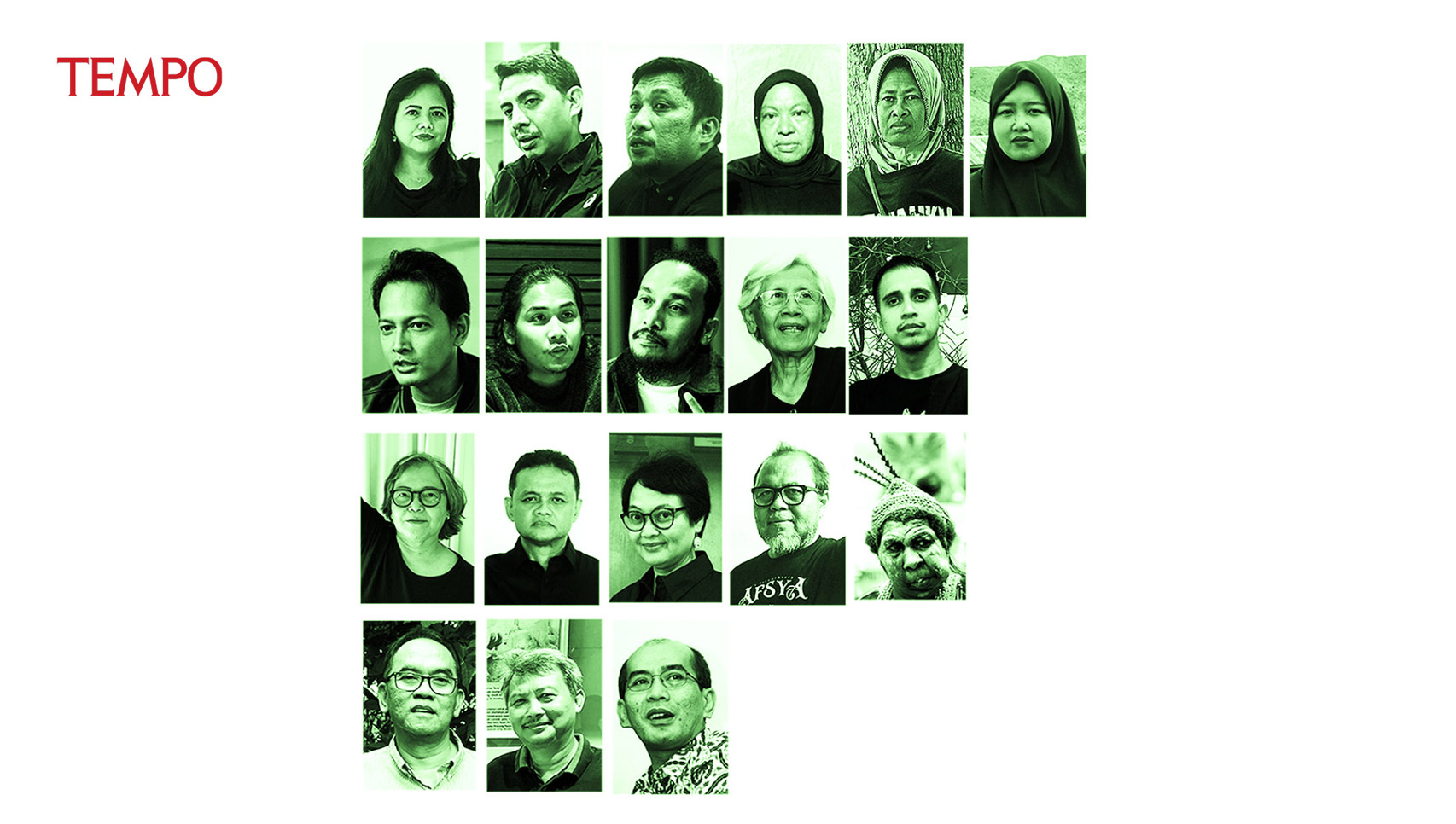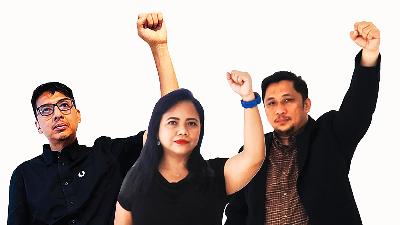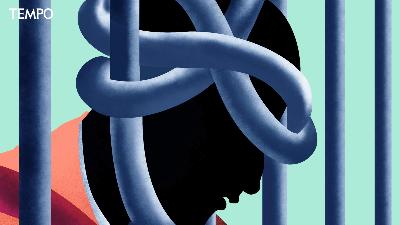Those Who Strive for Indonesia's Democracy
Monday, December 30, 2024
Despite various pressures, civil society movements provided much hope in 2024. They need to be more solid and strategically directed.
arsip tempo : 174673552435.

INDONESIA has not collapsed. Although the authorities have repeatedly manipulated the law, violated ethics, used all means to suppress democracy, and repressively silenced critical voices, we still have civil society groups that are persistent in preventing the Republic from falling into lawlessness. They bring hope: Indonesia is still worth fighting for as a country of dignity.
This weekly's special issue features those who move and speak out. We do not choose an individual as we usually do for the person of the year edition at the end of each year. This year, we select movement groups that have fought against the arbitrariness of the authorities in various sectors: university lecturers, traditional communities, celebrities, local communities, and university students. With all their limitations, amidst the siege of disinformation spread by buzzers and repression from the legal system, they voice the importance of the supremacy of law, democracy, and social justice.
One of these was the August 22, 2024, movement that thwarted the cunning efforts of members of the House of Representatives (DPR) to annul the Constitutional Court's decision to change the Regional Heads Election Law. Their unplanned actions succeeded in preventing the politicians from implementing their conspiracy. Large demonstrations in Jakarta and many provinces were successful in thwarting the DPR from creating a law overnight.
The Constitutional Court's ruling on August 20 annulled autocracy disguised as democracy. Constitutional Court judges changed the threshold for party support in regional head candidacy from 20 percent to 7.5 percent. The Constitutional Court also rejected the lawsuit that regional heads must be at least 30 years old by the time of inauguration, not at the time of their election. The DPR tried to work around this by creating a new law.
This constitutional court decision prevented the political scenario of the large coalition supporting Joko Widodo and Prabowo Subianto from controlling regional governments through regional head elections. In Jakarta, the Indonesian Democratic Party of Struggle (PDI-P), which was excluded from the government coalition, managed to nominate its own gubernatorial candidate, who was welcomed by voters by defeating the candidate supported by those in power. The scenario of a single candidate from the Indonesia Progress Coalition running unopposed was shattered by the Constitutional Court's decision.
However, these resistance movements are still sporadic, scattered across many issues with a non-solid narrative. They have no leader and no strategic scenario. They are separated from the public, who are divided by the formation of opinions on social media by agents of power distorting the facts and attacking those who try to be pioneers of resistance. The public is confused when it comes to processing the narratives circulated by both sides.
The documentary Dirty Vote, which circulated on YouTube and revealed a cunning scenario to game the presidential election last February, has been watched nearly 10 million times. However, the documentary failed to stem the victory of the Prabowo Subianto-Gibran Rakabuming Raka ticket. The massive operation of state apparatus and social assistance ahead of the election by President Jokowi, Gibran's father, was more tempting to voters than the facts revealed in that two-hour film. The narrative of Dirty Vote only moved the public in the August 22 movement.
The “Emergency Warning” protests may have been successful because the DPR conspiracy did not directly benefit Prabowo Subianto. The Regional Head Election Law that the DPR wanted to create gave Jokowi and his family the opportunity to continue to stay in power. However, such a political dynasty bothered Prabowo. His position would always be under threat: if something bad happened, as president, he could be immediately replaced by his vice president. It makes sense that Prabowo ordered politicians from the Gerindra Party and the coalition of its supporting parties to not vote in favor of that law.
The civil society movement will face more uphill battles in 2025 and beyond. Not even 100 days into his term, Prabowo has taken many steps that go against common sense, such as opening cooperation with China in the North Natuna Sea that threatens national sovereignty, planning to pardon corruptors, and wanting to annul direct regional head elections. In Paradoks Indonesia dan Solusinya (The Indonesian Paradox and Its Solution), a pamphlet book of Prabowo's thoughts published in 2022, his two recipes for leading Indonesia are revealed: imitating China in reviving the economy through state capitalism and returning the presidential election to the People's Consultative Assembly (MPR).
If our civil society movement is not solid, including in setting goals and scenarios of struggle, the effectiveness of their struggle will easily be swayed by elite interests. If the movement benefits the elite, they will succeed, but if they are detrimental, they will run into a wall. At this point, civil society groups must be smart in reading the situation. Our democracy and the aspirations of a robust government reform are at stake, in their hands.











